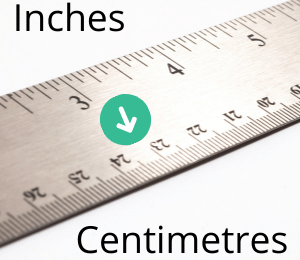“Watch a documentary, read Chapter 5 of your coursebook, and find several examples that illustrate the concept,” does it all sound familiar? As a student, you have a lot of information to memorize, and one way of applying your knowledge and working on its improvement would be essay writing.
Of course, you may know everything and understand how to apply the theory in practice. When you put down your ideas, you can find weaknesses and points you should review and improve for being a true specialist in your subject field. At the same time, essay writing is a gradual process, every time you become better if you allow yourself to grow. Here are some tips for your consideration of advancing your writing skills to the next level.
1. Everything starts with an outline
It is hard to imagine a house built without a blueprint, a car trip to a precise destination without a map, and few artists draw right away without a sketch. Of course, it works for everyone differently. Someone needs the chaos to be present just to tame it later on.
However, we would suggest looking at an outline to organize your thoughts, boost your research, and underline the major points you need to address. With an outline, you create your thesis statement, which is the core of the future essay. On the other hand, you are doing yourself a favor even if you make short tags, which are easy to forget and must be written down.
2. Learn about the essay basics
The main definition of the essay would be a short academic composition, regardless of its type. Argumentative, critical, rhetorical analysis essays are among the various types of essays that depend on their purpose. For instance, you need to write an analytical essay to focus your attention on the deep analysis of the subject. However, regardless of the purpose, all essays have a similar structure and must follow the specific requirements of their composition.
First of all, all essays have the rule of “five paragraphs”: introduction, first, second, and third body paragraphs, and conclusion. Of course, the number of body paragraphs may vary, but it should be consistent, and each section equals one idea. At the same time, keep in mind that your essay should answer three major questions, “what, how, and why?”
3. Find templates and look at how others write their essays
It is ok asking for help and an example that can give you an understanding of what your essay is missing. Surely, this method is not universal for finding a perfect composition, but you may improve by reading good and average essays from the perspective of a reader. You can develop a critical eye for your future review and edits by finding what makes sense and what needs further elaboration on the example of other person’s essay.
You may also search for professional assistance and find examples by people who know everything about academic writing. You can visit EssayPro.com and look at how they deal with different types of essays in such a manner. From basic templates to a professional academic paper, this practice will give you an advantage in the future.
4. Read and listen more
Some great ideas come from places you never thought you would find them. Besides syllabus literature, try to find articles and reviews by scholars as well as finding podcasts or YouTube videos (including documentaries) that will give you needed versatility of perspectives and views. It is perfectly fine to seek additional sources and to learn to do extended research on the subject.
As a result, you will find strong support for your arguments, or go back and review it if proven wrong. You are a person with a unique perspective on the subject, but having more than one source will improve your ethos when speaking both about something undisputed and controversial.
5. Proofreading and reviewing makes it perfect
One of the most annoying parts of writing a good essay is continually going back to it after resting for some time. Be ready to have several drafts that might change as you go through the process of reviewing it. It is preferable to finish an essay all at once and then review it with a fresh eye. It is good to dissociate yourself from being a person who wrote the essay and trying to imagine seeing it for the first time.
Be your critic when you address problems that come into attention first. Double-check if a grammar is correct, then if the essay presents the answer for three questions as mentioned earlier, “what, why, and how?”
If it is possible, give your essay for someone to look if it lacks something. Don’t expect others to provide you with profound feedback, but consider their suggestions.





